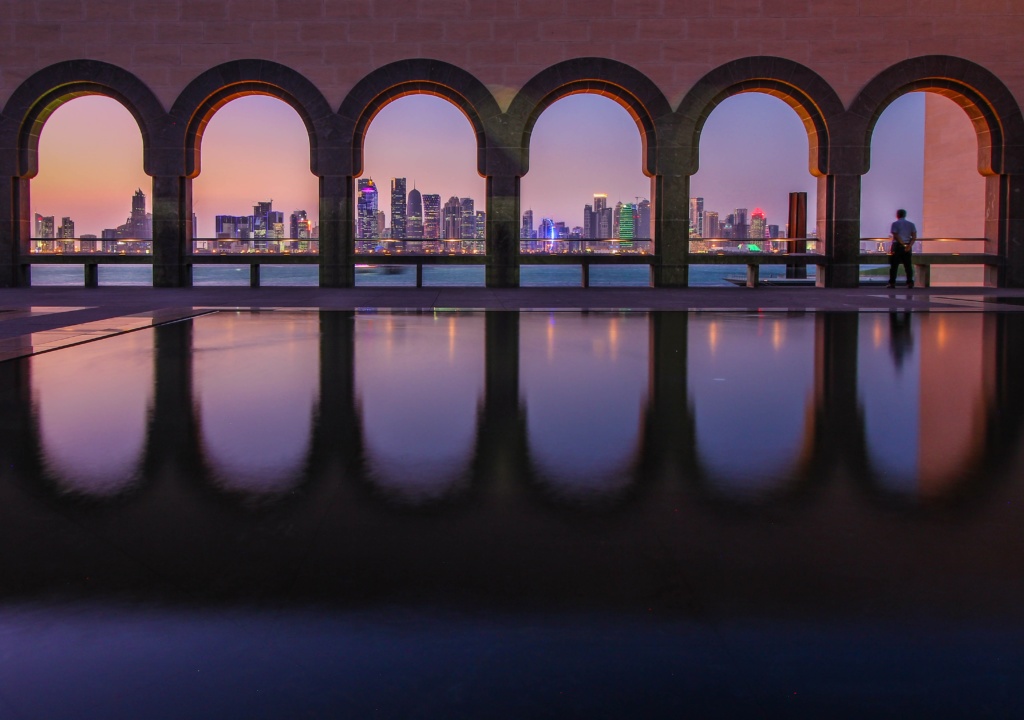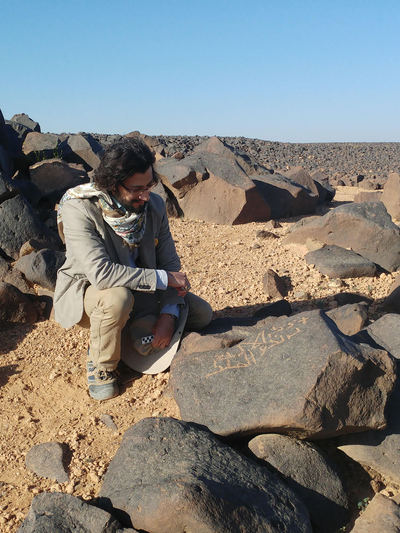
Another Browncast is up. You can listen on Libsyn, Apple, Spotify (and a variety of other platforms). Probably the easiest way to keep up the podcast since we don’t have a regular schedule is to subscribe to one of the links above!
In this episode I talk to Hussein Ibish, a resident scholar at the Arab Gulf States Insititute in Washington DC and a longtime commentator on Palestinian affairs as well as the Arab world in general. He described how the crisis looks to a liberal Arab scholar who would prefer to see peace for both Palestinians and Israelis, and what we may expect in the future and ended with a rather pessimistic (or optimistic, depending on your point of view) vision of the near future. We hope to have him back soon to discuss what a saner outcome could look like and how that can be achieved (at least in theory; in practice we are probably in for prolonged violence). This is a complement to our earlier podcast with Dr Edward Luttwak, who presented a more optimistic vision of what Israel is trying to achieve and what it is likely to achieve.
Our friends at scribebuddy.com have prepared a transcript. I am posting it at the end below, unedited. But first, here is a chatgpt summary:
Blog Post: A Deep Dive into the Middle Eastern Crisis with Hossam Ibish on The Brown Pundits Browncast In a recent episode of The Brown Pundits Browncast, Dr. Ali hosts Hossam Ibish, a prominent commentator on Middle Eastern affairs, to discuss the current tumultuous situation in the Middle East, focusing on the complex dynamics between Israel, Iran, Hezbollah, and Hamas. Their conversation sheds light on a geopolitical crisis that has long roots in history and contemporary struggles for power, influence, and survival. The Prelude to a Wider Conflict Ibish sets the stage by explaining the origins of the current conflict, particularly after Hamas' attack on southern Israel on October 7. This event was intended to provoke a multi-front war, which Hamas hoped would involve Iran and its network of militias, notably Hezbollah, the Houthis, and pro-Iranian forces in Iraq and Syria. However, despite these hopes, Hamas is not fully trusted by these groups due to its Sunni identity, which clashes with the Shia alignment of Iran’s “Axis of Resistance.†Hamas' attack, while significant, has not succeeded in igniting the widespread regional war it had hoped for. Nasrallah, the leader of Hezbollah, notably went into hiding during the initial escalation, leaving Hamas without the robust military support it had counted on. The Strategic Calculus: Hezbollah, Iran, and Israel Ibish highlights how Hezbollah, despite its vast arsenal of missiles, has refrained from fully engaging Israel. The reason? Hezbollah's primary mission, as dictated by Iran, is not to fight for Hamas or Gaza, but to serve as a deterrent in the event of an Israeli attack on Iran's nuclear facilities. This strategic restraint is informed by Hezbollah’s role as a vital asset in Iran’s regional power structure. While Hezbollah attempted to support Hamas through limited military action on the border with Israel, the group has largely avoided provoking an all-out war. This approach preserves Hezbollah’s strength for its primary purpose—defending Iran—and avoids unnecessary depletion of resources in a battle it doesn’t see as its own. Israel, on the other hand, views Hezbollah’s arsenal and its proximity to its borders as a significant threat, which has led to the current Israeli invasion of Lebanon. Israel's Quest for a Recuperative Victory Ibish introduces the idea of Israel’s need for a "recuperative victory." Following the security failures of October 7, Israel seeks to restore its national security image and the confidence of its citizens. For Israel, a clear-cut victory against Hezbollah in Lebanon would serve two purposes: weakening Iran's regional influence by crippling Hezbollah and restoring the sense of security for Israelis in the north. However, Ibish warns that this may lead to only an "illusion of security." Even if Israel manages to weaken Hezbollah and push them back from the border, guerrilla warfare and insurgency tactics will likely persist. This scenario would mirror Israel’s ongoing insurgency struggles in Gaza, where an unending cycle of attacks and counterattacks creates a quagmire that may last decades. Hezbollah’s Calculus: Back to Guerrilla Warfare? One of the most compelling points in Ibish’s analysis is Hezbollah’s potential shift back to its guerrilla roots. The expansion of Hezbollah during the Syrian civil war, where it acted as the main ground force for Assad, has left the group vulnerable to Israeli intelligence and infiltration. A return to a more focused guerrilla war in southern Lebanon could help Hezbollah regain its earlier effectiveness as a lean, resilient fighting force, a possibility that Nasrallah seems to welcome. Iran's Role and the Prospect of a Larger War The conversation then shifts to Iran’s broader role in the conflict. Ibish points out that while Iran has supported Hezbollah and Hamas in the past, its current priority is regime survival and preventing any attack on its nuclear facilities. The Iranian leadership may be feeling domestic political pressure to act, especially as Israel has been striking at its proxies without significant retaliation from Tehran. Ibish predicts that a "war of the cities," reminiscent of the Iran-Iraq War, could be on the horizon. Israel could target Iran’s oil production facilities and nuclear infrastructure, which would be a significant blow to Iran's economy and national security. In response, Iran might hunker down and focus on developing a nuclear weapon as a long-term survival strategy, similar to North Korea's approach. The Grim Reality: Open-Ended Insurgencies As the discussion wraps up, Ibish emphasizes the grim reality that Israel now faces: open-ended insurgencies in the south (Gaza), the north (Lebanon), and possibly soon in the east (West Bank). This strategy of counterinsurgency warfare offers no clear path to resolution, and Israel’s attempts to secure its borders may only deepen the quagmire. Conclusion In this insightful conversation, Hossam Ibish paints a complex and often bleak picture of the Middle East’s current situation. The region’s entrenched conflicts, ideological divides, and strategic imperatives have created a powder keg where no side seems capable of securing a decisive victory. Whether it’s Israel’s quest for security, Hezbollah’s guerrilla warfare tactics, or Iran’s nuclear ambitions, the road ahead is fraught with uncertainty. As the crisis continues to unfold, the stakes for all parties involved remain perilously high. This episode of The Brown Pundits Browncast offers a sobering reminder of the intricate web of alliances and hostilities that define the modern Middle East, and the dangerous potential for further escalation in the coming months.
Continue reading Browncast: Hussein Ibish on the War in the Middle East




 In this episode we talk to Dr Ahmed Al Jallad, Sofia Chair of Arabic Studies at Ohio State University. Dr Jallad is an expert on the languages and scripts of pre-Islamic Arabia. We talk about the origins of Arabic (most likely in the Northwest of the peninsula and not in the South as previously believed), the development of the Arabic script (most likely from Nabatean Arabic) and the inscriptions of the region (In the 6th Century CE the ones that do reference a religion mostly reference Christianity, not the pagan gods of pre-Islamic Arabia that dominate our vision of the “era of Jahiliya”..
In this episode we talk to Dr Ahmed Al Jallad, Sofia Chair of Arabic Studies at Ohio State University. Dr Jallad is an expert on the languages and scripts of pre-Islamic Arabia. We talk about the origins of Arabic (most likely in the Northwest of the peninsula and not in the South as previously believed), the development of the Arabic script (most likely from Nabatean Arabic) and the inscriptions of the region (In the 6th Century CE the ones that do reference a religion mostly reference Christianity, not the pagan gods of pre-Islamic Arabia that dominate our vision of the “era of Jahiliya”..